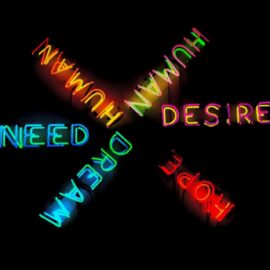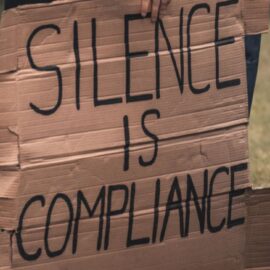

This article is an excerpt from the Shortform book guide to "The School of Life" by The School of Life. Shortform has the world's best summaries and analyses of books you should be reading.
Like this article? Sign up for a free trial here.
Want to know how to understand yourself better? Why is it important to improve your emotional intelligence?
According to The School of Life authors, if you want to learn how to understand yourself better, you should focus on strengthening your emotional intelligence. They say, if you have emotional intelligence, you’ll be able to better understand how your emotions work and empathize with yourself and others.
Read on to learn how to understand yourself better, according to the advice in The School of Life.
Understanding Yourself Better: Emotional Intelligence Matters
It’s hard to understand yourself, but not impossible, claim the authors of The School of Life. According to them, learning how to understand yourself better starts with gaining more emotional intelligence, which they define as your ability to understand how your and others’ emotions work. Can you think about and communicate your own feelings, understand the feelings of others, and practice empathy toward them?
In this article, we’ll describe how to understand yourself better, based on three of the methods in The School of Life: An Emotional Education.
1. Acknowledge How Little Control You Have Over Your Mind
The first step toward understanding yourself better is acknowledging that you’re not fully in control of your behaviors and that much of your personality and beliefs are shaped by outside forces from the past, as previously discussed. When you accept this fact, you don’t have to blame yourself for all your undesirable behaviors. You can also respond to challenges or conflicts with more equanimity and less self-righteousness: You see that you may be having a bad reaction due to a childhood experience and can accept that you might be in the wrong.
(Shortform note: The authors’ advice on how to understand yourself by not taking responsibility for your behaviors seems to directly contradict the more common advice to take responsibility for your actions. However, those two approaches can coexist: Taking responsibility for your actions means accepting and dealing with the consequences of your decisions—the decision to speak harshly to your boss, for example. The authors’ advice deals more with the source of your decisions—why you chose to speak harshly to your boss. So you can recognize that you talked back to your boss because your parents were strict and you’ve developed a dislike of authority while also responsibly dealing with the fallout from that decision—making amends to your boss, in this case.)
2. See Others as Equally Hurt and Damaged
A big reason why you may have never tried to learn how to understand yourself better may have been because you’re afraid you’ll find abnormally bad thoughts and beliefs in your psyche. However, the authors contend that most of what we think and feel isn’t unique to us. Therefore, one method of gaining emotional intelligence is to simply understand that everyone is just as hurt, strange, and confused as you are. This will let you explore and acknowledge your own strangeness without shame and therefore cope with it better.
(Shortform note: It may be hard to take someone’s word that everyone struggles internally with the same things you do. If that’s the case, you might consider joining a support group in which you can air your thoughts and feelings and hear about others’ similar thoughts and feelings. Or you could simply start a get-together of friends during which you talk about what’s going on—this can help you feel more connected and thus less afraid of your abnormalities.)
3. Psychotherapy
Psychotherapy is an excellent way to understand yourself better, write the authors. Psychotherapy involves recounting what’s going on in your mind to a non-judgmental therapist. By prompting you to talk about certain things and keeping you on track of an important-seeming idea, therapists help you explore key disruptive aspects of your psyche.
De Botton warns that psychotherapy won’t solve all our problems, but it will make us more mentally flexible and less beholden to broad rules we’ve set up for ourselves based on our childhood experiences (for example, never date someone too nice, pretend to be happy even if you aren’t, and so on). This is because psychotherapy helps us understand where those rules came from and we can then choose to act differently.
We also become more compassionate because by understanding all the ways we were impacted and possibly hurt by events in our past, we can understand how events have also hurt and impacted others.
| Psychotherapy: Useful or Outdated? While the book’s authors strongly favor psychotherapy as a way to understand yourself better, critics point out that its effectiveness is limited to the skill of your therapist. One critic points out three possible flaws with modern psychotherapists: Psychotherapists aren’t curious or well-read. In the Freudian tradition of psychotherapy, therapists are supposed to be knowledgeable of arts and culture and able to connect patients’ feelings to a broader body of cultural information. They were also extremely curious and determined to get at the basis of patients’ problems. Today, though, therapists focus narrowly on alleviating symptoms and aren’t as curious about patients’ backgrounds. This makes them less able to evolve a patient’s understanding of themselves. Psychotherapists aren’t in tune with modern psychological issues. A critic also argues that many therapists aren’t equipped to deal with the constantly evolving problems of modern society. Many therapists aren’t even aware of the problems they struggle with today and thus can’t help others be more mentally flexible and choose better courses of action. Psychotherapists don’t understand patients’ goals. Goals of therapy patients today are different from those in previous eras. But many therapists don’t work based on these updated goals and focus on outdated goals (work-life balance is a goal the critic describes as a late 20th-century goal, for example). The result of unhelpful or outdated psychotherapy may be to make patients less compassionate toward others. If they feel their therapist doesn’t try to understand their feelings or isn’t attuned to their needs and goals, they may not try or want to relate better to others. |

———End of Preview———
Like what you just read? Read the rest of the world's best book summary and analysis of The School of Life's "The School of Life" at Shortform.
Here's what you'll find in our full The School of Life summary:
- Why most people lack emotional intelligence and make poor choices
- How emotional intelligence can make you feel more fulfilled in life
- How to gain emotional intelligence about yourself, others, relationships, and work






